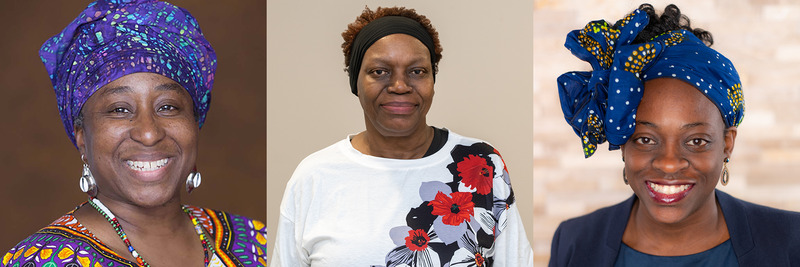ALA Civic Imagination Station @ IU Libraries
Creative scholar Dr. Maria Hamilton Abegunde, and librarians DeLoice Holliday and Willa Liburd Tavernier work together as part of the pilot cohort of twelve artists and library staff teams selected from a national application process conducted in June and July 2022 by the American Library Association (ALA) to create Civic Imagination Stations. To do this libraries partner with local artists to implement arts programming that builds literacy and digital skills. This ALA program is supported by The Estée Lauder Companies WRITING CHANGE initiative, a three-year global, literacy initiative in partnership with Amanda Gorman, the youngest inaugural poet in U.S. history, award-winning writer, and Estée Lauder Global Changemaker.
The Civic Imagination Stations program will model processes by which other librarian/artist partnerships can work together to create locally appropriate and meaningful civic imagination projects.
We situate our collaboration at the intersection of social issues, Black expressive traditions, and digital technology. As part of Professor Maria Hamilton Abegunde’s Contemporary Social Issues in African American/Black Communities class, we will utilize the new open access digital collection and resource, Land, Wealth, Liberation: The Making and Unmaking of Black Wealth in America, recently launched by IU Libraries with support from the Institute for Advanced Study, and the Center for Research on Race and Ethnicity in Society. The collection aims to foster intercultural understanding by pulling together the fragmented histories of black neighborhoods in the United States to provide a richer understanding of marginalized communities, and offers an opportunity to grapple with what historian Tiya Miles characterizes as “public memory, emotional investments, and competing group aims.”
This project addresses the need to construct space within the public sphere and the academy to unmask racialized systems’ effects on contemporary social issues - in this case, Black environmental experiences - and the need to interrupt the marginalization of Blackness in digital literacies and humanities. By forming an inclusive community of practice between community partners, librarians, a creative scholar, and her students, this project will expand civic literacy, challenge public memory, and build information and digital literacies.


